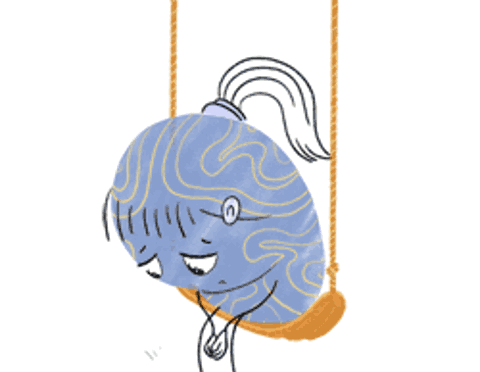Grief is a normal way of dealing with that loss, but it can have a big impact on your life, your children’s life and the other people around you. If a person who is close to you or your children is very ill, grief and bereavement can begin before death.
You and your children can experience grief throughout your life, and it can affect your feelings, sleep, relationships and school or work.
World events may also have an impact on you and your children. It is understandable for children to feel upset, particularly if they see extensive tv news coverage. This may also bring back other memories and feelings for you and your family that are hard to cope with.
Family, friends and services like Children 1st Parentline can offer practical and emotional support to help you through your loss. It may be helpful to ask a friend to deliver shopping or pre-prepared meals to your door, support you and your children through visits or videocalls, or to help with arrangements you may need to make following your loved ones’ death. Even the little things can all help give you and your family the time and space you need to grieve.
Parents and carers tell us that having somebody at Children 1st Parentline there to listen to them can be a help in itself.
It’s natural to feel or react to the loss of a loved one in a different way to your children, partner, other family members or friends. Understanding these differences and talking about them can help you and the other members of your family feel supported. We all need support and to be respected in the way that we grieve. This can be hard, and it may help to talk to somebody outside your immediate family for help. Children 1st Parentline can support you and Cruse Scotland also offer specialist bereavement support through their helpline, as well as a number of leaflets to help those who have been bereaved and the people that are supporting them.
If you don’t know where to turn, Children 1st Parentline can help you and your family.
Your child may go back to behaving in ways they did when they were younger. Just like adults they may not seem like their usual self. The most important thing is they feel safe and know that you are there to help them to deal with their grief and loss.
Your children may need help to name their feelings, to understand them and to talk about them.
Things that families tell Children 1st Parentline have helped their children through grief and loss are:
This can help them to reconnect the person who has gone and to know that it’s ok to talk about them. It can help to spend time connecting with wider family and friends – even if this needs to be through phone calls and video calls because of social distancing.
Or spend time doing something enjoyable, which they used to do with their loved one, like cuddling on the sofa to watch a programme together.
Things like playing a game, colouring in, or home baking let your children know you are there with them. You don’t need to focus on the grief or try to make a conversation happen.
Giving your children space and time will mean that they know they can share their feelings when they are ready.
What your child needs most is for you to listen when they are ready to talk. Give them your full attention, hear their thoughts, respond to their questions honestly in a way that is suitable for their age and help them to express themselves.
Sharing your own feelings with them, in an age-appropriate way can help them to express themselves. Talking about your own feelings of sadness, loneliness, or anger with them will help them understand that their response to their loss is normal.
It is okay for your child to see your good and bad days and share in your emotions. Being honest about your feelings will help your child.
Keeping to routines will help your child feel safe and secure. Talk to your child about what routines you can keep and what new routines you need to introduce and stick to them. Giving your child predictability will reassure them that you are there and give them confidence.
You cannot help your child to cope through their loss, unless you have space to share your feelings and support to meet your own needs.
Find small ways to be kind to yourself and if you don’t have immediate sources of support, Children 1st Parentline is here.

Children and trauma
When children:
- Experience the death of a parent or someone very close to them
- Witness the death of someone
- Have to come to terms with a terminal illness
They are likely to experience trauma and will need lots of help to talk through, make sense of, and come to terms with what has happened. In some cases, they may need specialist support from a psychologist or counsellor.
Get support
Children 1st Parentline is here to support your family through grief and loss. We’ll be able to suggest some things that might help you and your child, or let you know about specialist organisations that can give further support.
